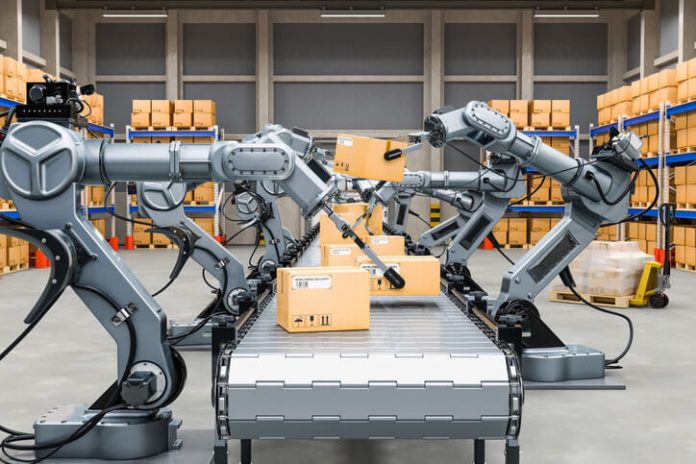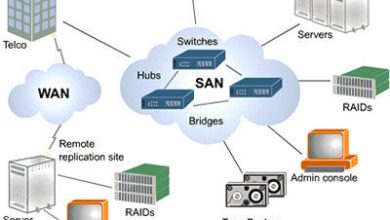How Artificial Intelligence is Transforming the Logistics Industry

While artificial intelligence may conjure up images of Terminators and other Hollywood robots, what many people don’t realize is that the technology has practical uses in the logistics industry, too. In fact, some of the top logistics companies around the world are using artificial intelligence to boost performance and efficiency across their operations and gain a strategic advantage over their competitors.
Artificial intelligence (AI) has the potential to transform the logistics industry, but it’s not going to happen overnight. AI must be implemented with care and subtlety, with the main goal being for it to enhance the capabilities of humans rather than to replace them completely. Here are some ways in which AI has already changed logistics and how it will continue to do so in the future.
What Is Artificial Intelligence?
Artificial intelligence is a subfield of computer science that focuses on creating intelligent machines and software. AI has been around since the 1950s, but it was often overshadowed by more popular and accessible technologies like personal computers and smartphones. As these technologies have grown in popularity, AI has found its own place in our world. It’s now used in everything from self-driving cars to helping doctors make diagnoses.
Why Use Artificial Intelligence in Logistics Industry?
The logistics industry has always been one of the most data-intensive sectors in business. With many shipments and thousands of warehouses, carriers, and customers, it’s no surprise that many companies are turning to artificial intelligence to help them manage their supply chain. Companies have used AI for decades to optimize routes for deliveries and fleets of trucks.
Logistics has long been a sector of the economy that has been ripe for innovation. The rapid changes in technology and consumer behavior have created new demands for services, which is why it’s important to use AI for Logistics Industry. AI can be used in a number of ways to help improve performance, from faster lead identification and data access to predictive maintenance solutions. It can also be used to create more efficient routes by analyzing how traffic patterns are changing over time.
How is AI Transforming the Logistics Industry?
In logistics, AI unlocks Big Data’s true potential
AI unlocks Big Data’s true potential. AI algorithms do not require human intervention and can make more complex decisions. For example, AI can better judge a customer’s needs based on previous purchases, which allows logistics companies to provide a more personalized experience. The result? Shorter shipment times, lower costs, and happier customers.
AI unlocks Big Data’s true potential. In logistics, AI unlocks Big Data’s true potential. AI-powered supply chains are able to make fast and accurate decisions based on an immense amount of data that would take human beings hours to understand. This is why logistics companies are investing in AI technologies now more than ever before—to advance their delivery capabilities and increase their efficiency.
Robots can be used to replace workers in the logistics industry
While the logistics industry has always been in a state of flux, it’s never been more dynamic than it is now. As the industry continues to grow, the pressure to improve efficiency and reduce costs is mounting. The best way to do that? Automation. Robots can be used to replace workers in the logistics industry, reducing labor costs and increasing productivity. They can also be used for mundane tasks like performing inspections or stocking shelves with inventory instead of humans.
Robots have the potential to replace workers in many industries, but the logistics industry has been one of the first to really start using them. The use of robots in warehouses and distribution centers can be used to replace workers and improve efficiency.
Artificial intelligence in logistics encourages the use of self-driving cars
Artificial intelligence in logistics has the potential to change the industry as we know it. Self-driving cars for example, have the ability to move merchandise quickly and with less cost. Drones are also a new avenue for delivery that would help avoid congested roads and lengthy delivery times.
Self-driving cars are no longer a distant dream. In the last few years, self-driving cars have become a reality in many countries and it is only a matter of time before they are commonplace. This will be especially true as artificial intelligence in logistics encourages the use of self-driving cars in the logistics industry.
Benefits of Having AI-Powered Logistics Systems
AI-powered logistics systems are taking over the logistics industry, delivering unprecedented benefits to organizations of all sizes. With AI-powered technologies on their side, these businesses can cut costs and expand their customer base while maintaining a high level of service. Here are just some of the benefits AI-powered logistics systems provide:
Enhanced Customer Experience
With advancements in technology, companies are now able to offer customers an enhanced customer experience. One example of this is the use of artificial intelligence in logistics. With the help of AI, companies can now detect and predict. When a shipment will be delivered to arrive at a specific time. This means that if you are waiting for a package from Amazon or your clothes from H&M, you won’t have to worry about it arriving late and missing your deadline.
Better Demand Prediction
Companies are beginning to use artificial intelligence (AI) for forecasting demand in order to make more accurate predictions. With AI, companies can examine large amounts of data and find connections that humans may have missed. Plus, AI allows the company to forecast better because it can take into account factors such as weather, seasonality and other market trends. However, companies will need to be careful that they don’t rely too much on AI and make decisions without considering how human behavior will affect supply and demand.
Enhanced Customer Experience
The logistics industry has been slow to adopt new technologies, due in part to its regulations and restrictions. However, in the past few years we have seen a rise of technologies that are altering how companies conduct their operations. With advancements in artificial intelligence (AI) and machine learning, we see a future where logistics become more of an automated process. With these technological advancements comes enhanced customer experience.
Efficient Planning and Resource Management
The logistics industry has been traditionally reliant on paper-based processes and manual data entry. As a result, it has been difficult to plan for, and manage resources effectively. However, with the incorporation of artificial intelligence into logistics operations, these inefficiencies can be significantly reduced. Today’s AI-powered logistics solutions offer intelligent routing and scheduling capabilities that optimize transportation resources and minimize costs. They also provide businesses with a full 360-degree view of their supply chain. So they can identify areas where improvement is needed.
Real-Time Route Optimization
Real-Time route optimization (RTRO) is where a software application or ‘robot’ automatically identifies and adjusts routes to ensure that drivers only travel on optimal routes and reduce wasted time driving in circles, said John. The main benefit of RTRO is increased driver productivity, which leads to lower costs for shipping companies. It also reduces emissions by reducing mileage, and it improves customer service by providing more reliable delivery times.
Warehouse automation
As a result, an increasing number of warehouses are automating their processes with AI. Warehouse automation helps decrease labor costs, while also improving efficiency and accuracy. Not only can warehouse automation help improve warehouse operations in general, but it also offers significant benefits to retail employees who deal with customer service and other tasks not related to physical logistics. For example, retail associates can use warehouse automation to track inventory or help customers find items on store shelves.
Sales and marketing optimization
AI-powered optimization in sales and marketing has been a game changer for logistics companies. Retailers are seeking more personalization, and AI can help. For example, retailers have begun to rely on AI to segment their customers based on purchase history, demographic data and other factors that would allow them to send personalized messages to increase brand loyalty.
Product inspection
One way that AI has transformed logistics is in product inspection. For example, at a warehouse, workers can spend hours inspecting goods and deciding which are defective. Robots can do this work with accuracy and speed and without risking injury. AI also helps monitor inventory levels, predict demand for goods, price items appropriately and make deliveries more efficiently.
Conclusion
AI and machine learning are revolutionizing logistics. This industry of IT solutions for logistics will allow companies to make better decisions, manage their resources more efficiently, and improve customer experiences.
In conclusion, artificial intelligence has already begun to transform the logistics industry. The potential for AI to enhance supply chain management and distribution with greater accuracy and efficiency is incredible. While there are some challenges in implementing AI, such as cost. It seems clear that this technology has already made a major impact on how companies manage their inventory.
Read Also
10 Benefits Of Fleet Management Systems That Every Business Owner Should Know





